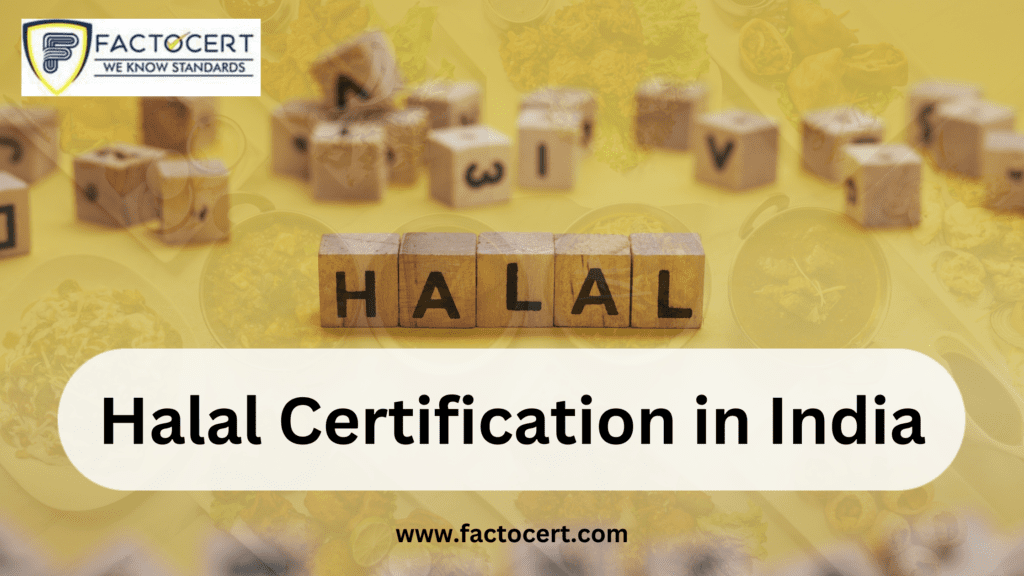Halal Certification in India In recent years, the global demand for Halal products has increased significantly, owing to an increasing Muslim population and consumer knowledge of dietary preferences. In India, where cultural and religious diversity is firmly ingrained, the Halal Certification system has had a significant impact on the food business. This blog delves into the impact of Halal Certification on many parts of the Indian food industry, including the Certification process, standards, and implications for businesses, restaurants, hotels, and, most importantly, consumers.
Understanding Halal Certification:
Halal Certification is a method that guarantees items follow Islamic dietary standards as outlined in the Quran. Halal Certification India applies to a wide range of food and non-food goods. The Certification procedure requires intense investigation by authorised entities to ensure conformity with particular Halal criteria.
Halal Standards and Certification Bodies:
The Halal Certification standards are created to comply with Islamic law and include factors such as ingredient source, processing procedures, and overall cleanliness. In India, numerous Halal Certification groups, such as the Jamiat Ulama I Hind Halal Trust, play an important role in ensuring that products meet these demanding requirements. These organisations strive to connect producers with Muslim customers, creating market trust and openness.
Halal Certification Process and Specific Labelling:
The Halal Certification India procedure includes a rigorous assessment of the entire supply chain, from raw materials to finished products. This guarantees that each stage meets Halal criteria. Once approved, products are permitted to wear a special Halal label, indicating to consumers that the product complies with Islamic dietary requirements. This labelling is critical for Muslim consumers to make educated decisions when purchasing food or items.
Impact on Restaurants and Hotels:
The impact of Halal Certification is not limited to packaged items; it also extends to the hospitality industry, including restaurants and hotels. With an increase in Halal-conscious consumers, numerous restaurants are seeking Halal Certification to enter this lucrative market. Certification not only draws Muslim customers, but it also demonstrates a dedication to food safety and quality, which appeals to a larger client base.
Food Safety and Halal Certification:
One of the indirect benefits of Halal Certification India is a focus on food safety. Certification authorities’ severe procedures ensure that Halal-certified items are produced and handled with the greatest levels of cleanliness and hygiene. This emphasis on food safety helps not only Muslim consumers, but the entire population, resulting in an overall improvement in the quality of food products on the market.
Meeting the requirements for halal Certification:
To get and retain Halal Certification, businesses must meet particular conditions. This includes using Halal-compliant materials, following tight production techniques, and separating Halal and non-Halal items. Understanding and achieving these regulations is critical for businesses that want to serve the Halal market successfully.
Consumer Trust and Market Expansion:
Halal Certification India builds trust among Muslim consumers by ensuring that the products they purchase are consistent with their religious beliefs. This trust, in turn, helps to expand the market for Halal products in India. As more firms choose Halal Certification, they have access to a bigger consumer base, thereby encouraging industry growth and fostering economic inclusion.
Why Choose Factocert Halal Certification in India?
Factocert is one of India’s leading Halal Certification providers. We provide Halal Consultants in India. We are trusted Halal Certification Bodies in India and provide services in different states such as Mumbai,Bangalore,Delhi etc for consultation visit our website www.factocert.com or you can also get in touch with us at contact@factocert.com and factocert also provide different ISO Standards like ISO 27001, ISO 9001, ISO 45001, ISO 13485, ISO 17025, ISO 14001, ISO 22000, etc… At a better cost.
Conclusion:
The influence of Halal Certification on the Indian food business is diverse. Halal Certification has become an important part of many food manufacturers, restaurants, and hotels’ business strategies, ensuring compliance with Islamic dietary requirements while also encouraging consumer trust and promoting food safety. As the demand for Halal products grows, businesses that understand the significance of Halal Certification stand to benefit in a market that values transparency, quality, and inclusivity.
For More information visit : Halal Certification in India





